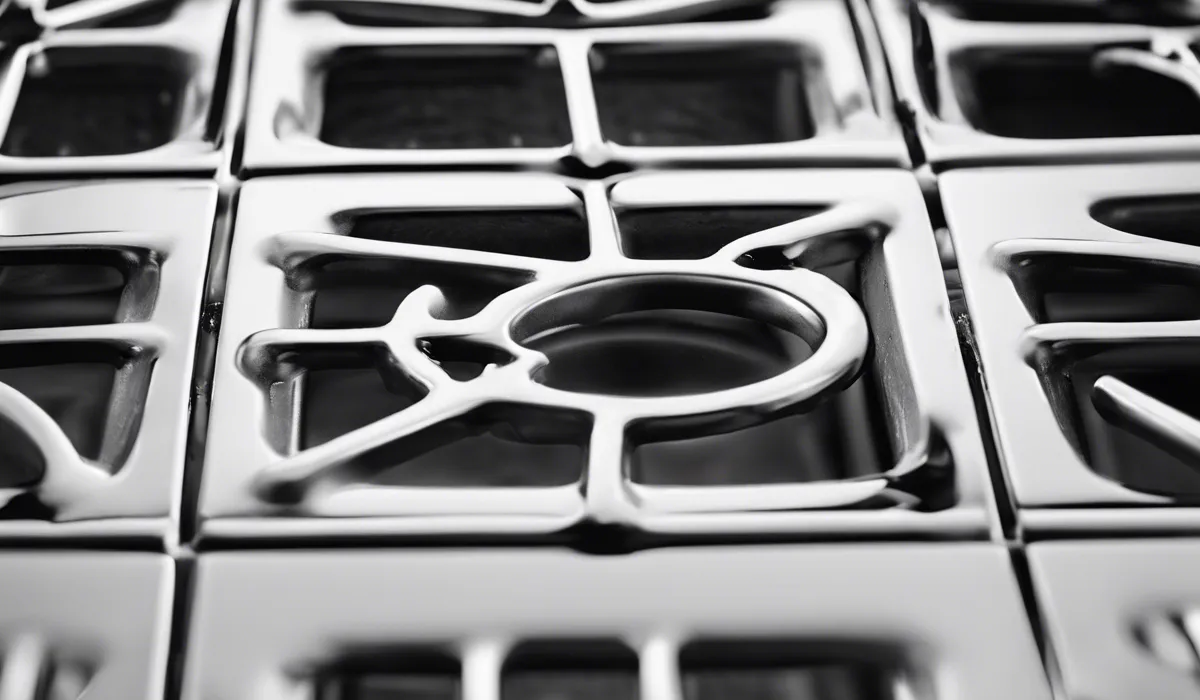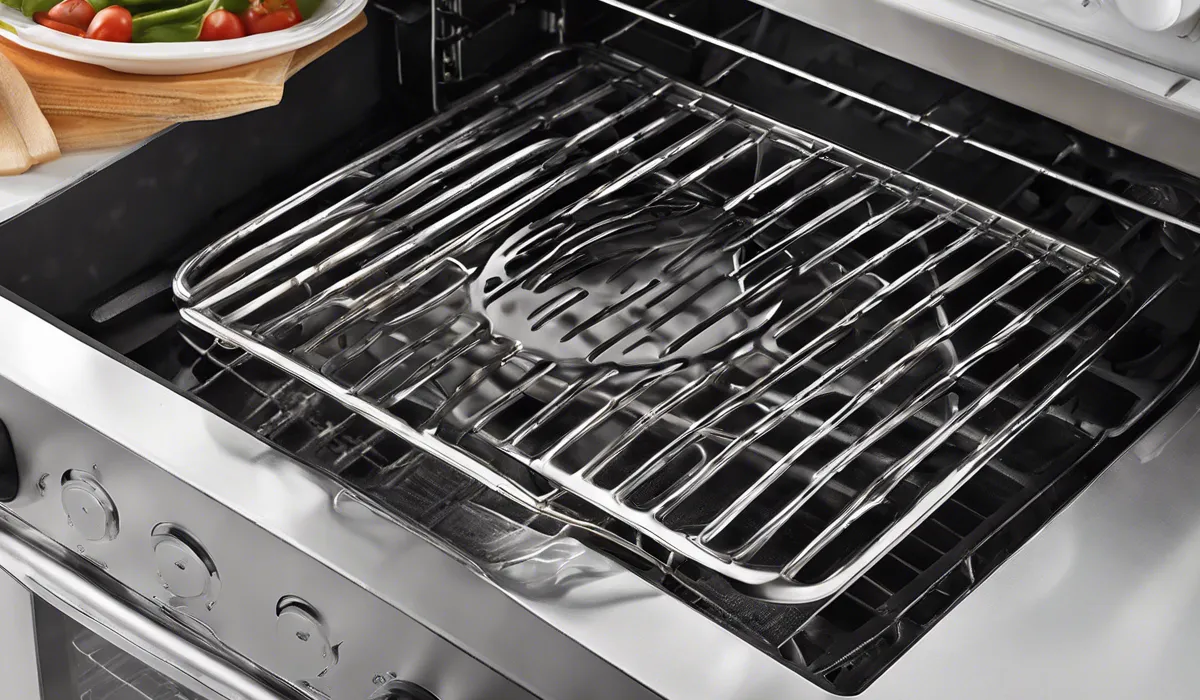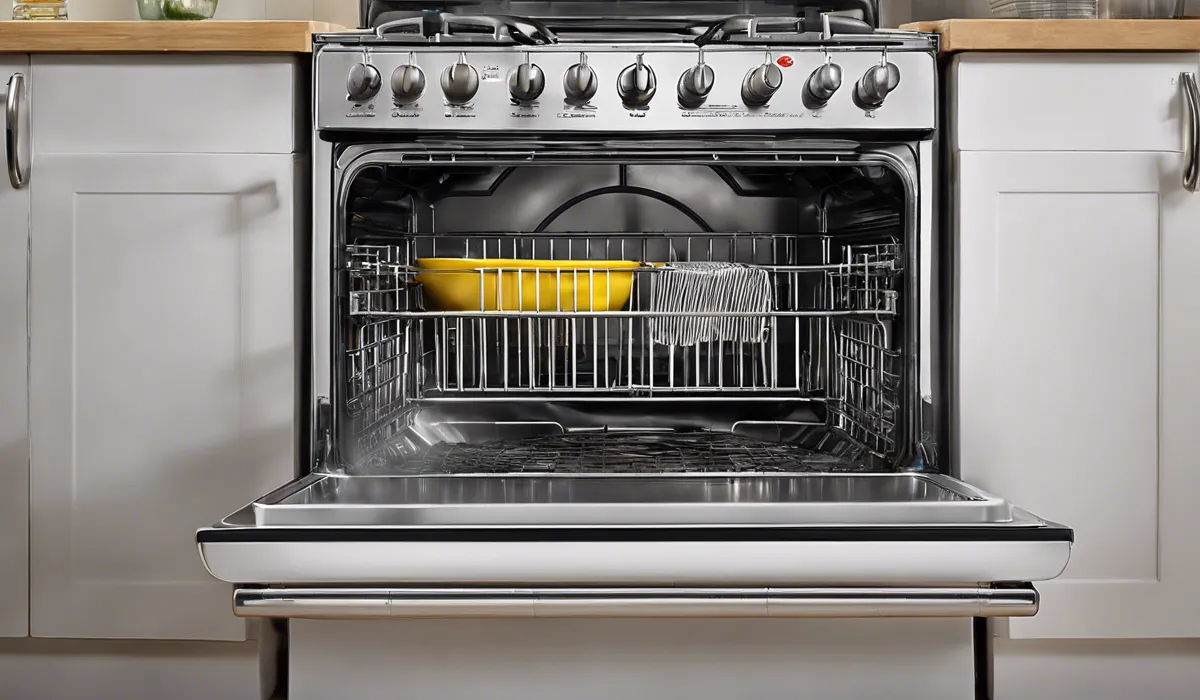Can Stove Grates Go in the Dishwasher? Find Out Here!
Some stove grates can be washed in the dishwasher if they are made from dishwasher-safe materials like stainless steel or cast iron without a coating. Check the manufacturer’s guidelines to ensure dishwasher use won’t cause damage. Grates with rubberized feet or finishes should not be dishwashed.
Understanding Stove Grates and Dishwasher Safety

Definition and Types of Stove Grates
Stove grates are essential components of gas stoves. They support pots and pans while cooking.
There are various types of stove grates, such as continuous grates that cover multiple burners, individual grates for each burner, and grates with different designs to accommodate woks or other specialized cookware.
Material Considerations for Dishwasher Safety
When it comes to cleaning stove grates in the dishwasher, it is crucial to consider the material they are made from.
Not all materials are dishwasher-safe, and placing the wrong type of grate in the dishwasher can cause damage both to the grate and the appliance.
Dishwasher’s Impact on Different Stove Grate Materials
Cast Iron
Cast iron grates are durable, but they are prone to rust if not dried properly. Washing them in a dishwasher might strip away the seasoning that protects them from corrosion and moisture.
Enamel-Coated
Enamel-coated grates have a smooth finish that can be damaged by harsh dishwasher detergents, potentially leading to chipping and a loss of the protective coating.
Stainless Steel
Stainless steel grates are more likely to withstand the dishwasher’s environment. However, they can still suffer from water spots or lose their shine if washed with abrasive detergents.
Manufacturer’s Instructions and Recommendations
It’s always best to consult the manufacturer’s guidelines before placing stove grates in the dishwasher. They provide specific cleaning instructions and inform if the grates are dishwasher-safe.
Cleaning Stove Grates in the Dishwasher: Pros and Cons

Pros of Using the Dishwasher for Stove Grates
Convenience and Time-Saving
The dishwasher can save a lot of time and effort. You can simply place the grates inside, let the machine do its job, and focus on other tasks.
Effective Cleaning with High Temperature and Detergents
High temperatures and potent detergents in a dishwasher can help to break down grease and food particles, resulting in a deep clean.
Reducing Manual Scrubbing Effort
Scrubbing stove grates by hand is labor-intensive. A dishwasher can minimize this chore, sparing your hands from the grime and the abrasiveness of cleaners.
Cons of Using the Dishwasher for Stove Grates
Potential for Rust and Corrosion
Water and chemicals in the dishwasher can cause rust and corrosion on stove grates, particularly if they are made of cast iron or have vulnerable coatings.
Risk of Damaging the Dishwasher
Heavy grates can damage the dishwasher’s racks or spray arms if not placed properly. It’s important to load the dishwasher carefully to avoid any potential damage.
Possible Degradation of Grate Coating
Repeated dishwasher use can degrade the coating on enamel-coated grates, leading to a dull appearance and less protection against rust.
Dishwasher’s Inefficiency for Burnt-on Residue
For grates with burnt-on residue, the dishwasher might not be sufficient. These tough stains often require pre-treatment or manual cleaning to be effectively removed.
Best Practices for Dishwashing Stove Grates

Preparing Stove Grates for the Dishwasher
Removing Food Residues
Before placing grates in the dishwasher, remove any loose food particles to prevent clogging and ensure a more effective wash cycle.
Assessing the Level of Soiling
Examine your grates to determine the extent of soiling. This will help you decide if a dishwasher cycle will be adequate or if pre-treatment is necessary.
Selecting the Right Dishwasher Cycle and Detergents
Choose a dishwasher cycle that is appropriate for the level of cleaning needed and use detergents that are gentle on the grate’s material.
Alternative Cleaning Methods if Not Dishwasher-Safe
Manual Cleaning Techniques
If your grates are not suited for the dishwasher, consider manual cleaning. Use non-abrasive tools and gentle cleaners to protect the surface.
Use of Specific Cleaning Agents for Tough Grime
For difficult stains, there are specialized cleaning agents designed to tackle tough grime without harming the material of the grates.
Maintenance Tips to Prolong the Life of Stove Grates
Regular maintenance, such as prompt cleaning after spills and protective seasoning for cast iron grates, can extend their lifespan and appearance.
When to Consult with Professionals for Cleaning and Maintenance
If you’re unsure about the best care for your stove grates, or if they require special attention, seeking professional advice can prevent damage and ensure proper maintenance.
FAQs About Stove Grates in the Dishwasher
Can all stove grates be washed in the dishwasher?
Not all stove grates are dishwasher-safe. Only grates made from dishwasher-safe materials like stainless steel or uncoated cast iron should be washed in the dishwasher.
How do I know if my stove grates are dishwasher-safe?
Check the manufacturer’s guidelines to determine if your stove grates are safe for dishwasher use to avoid any damage.
Can I put cast iron stove grates in the dishwasher?
Cast iron stove grates without a coating can generally be washed in the dishwasher, but it’s best to refer to the manufacturer’s instructions.
What happens if I put non-dishwasher-safe grates in the dishwasher?
Washing non-dishwasher-safe grates in the dishwasher can lead to damage such as rust, discoloration, or degradation of any protective coatings.
Are stove grates with rubberized feet or finishes safe for the dishwasher?
No, stove grates with rubberized feet or finishes should not be placed in the dishwasher as the heat and detergents can damage these materials.
Final Thoughts
Stove grates can be cleaned in the dishwasher if they are composed of dishwasher-safe materials such as stainless steel or uncoated cast iron. Always refer to the manufacturer’s guidelines before doing so to prevent damage.
Avoid dishwashing grates that have rubberized feet or special finishes, as these can be harmed by dishwasher conditions.
Useful Resources
- https://www.kirklandwa.gov/Government/Departments/Public-Works-Department/Solid-Waste-Services/Recycle/Beyond-the-Cart/Appliances-and-Scrap-Metal
- https://www.oregonmetro.gov/tools-living/garbage-and-recycling/find-a-recycler
- https://www.hamiltoncounty.in.gov/270/Materials-Accepted-at-the-HHW-Drop-Off-C





